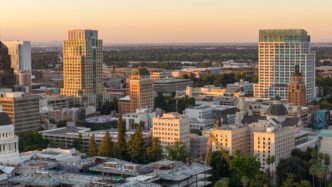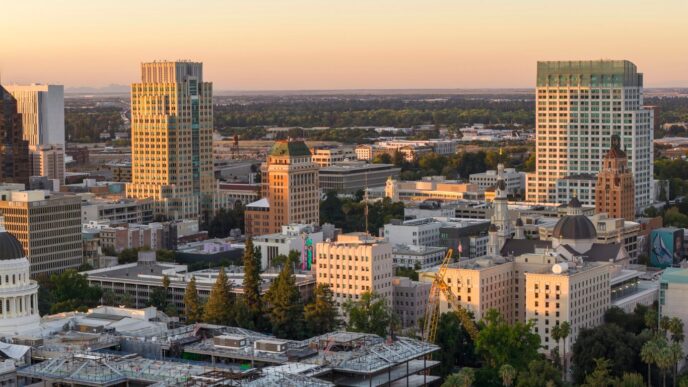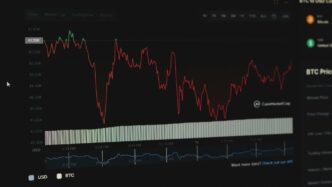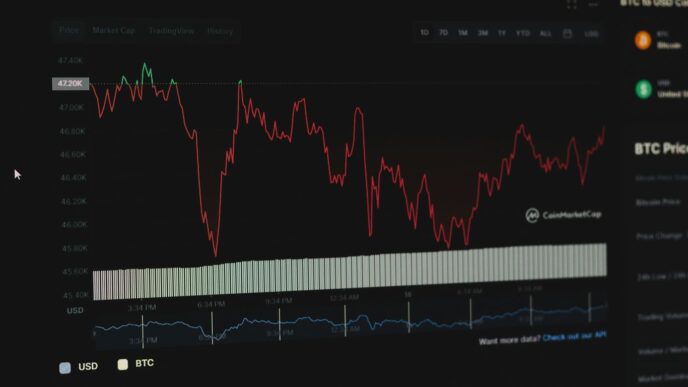The landscape of commercial real estate in Florida is thriving, with QSR real estate, c-store site selection, and retail development at the forefront of shaping vibrant consumer markets. Quick-service restaurants (QSRs) and convenience stores (c-stores) are capitalizing on strategic locations to meet the demands of fast-paced lifestyles, while retail development drives economic growth through innovative shopping centers and mixed-use projects. In cities like Tampa, Orlando, and Daytona Beach, developers like MX Properties, Inc., led by experts such as Lawrence Todd Maxwell, are navigating market trends to deliver high-value opportunities. This article explores the dynamics of QSR real estate, c-store site selection, and retail development, offering insights into their strategies and future potential as of May 1, 2025.
The Role of QSR Real Estate in Florida’s Growth
QSR real estate is a cornerstone of Florida’s commercial sector, driven by the state’s growing population and tourism-driven economy. Quick-service restaurants, such as Taco Bell, McDonald’s, and Starbucks, thrive in high-traffic locations that cater to on-the-go consumers. QSR real estate focuses on securing prime sites with excellent visibility, accessibility, and proximity to residential and commercial hubs. In Florida, where urban centers like Tampa and Orlando are expanding, QSR real estate developers prioritize locations near highways, shopping centers, and tourist attractions. MX Properties, Inc., with over 30 years of experience, specializes in QSR real estate by conducting traffic studies and demographic analyses to ensure sites align with brand goals. These efforts support franchisees in achieving sustainable growth, as strategic QSR real estate placements drive consistent customer footfall and revenue.
C-Store Site Selection: Precision for Profitability
C-store site selection is a meticulous process that determines the success of convenience stores in competitive markets. With Florida’s diverse demographics and steady influx of visitors, c-store site selection focuses on high-traffic corridors, such as intersections or gas station-adjacent sites, to capture impulse buyers. Key factors include daily vehicle counts, population density, and proximity to complementary businesses like QSRs. Developers like MX Properties, Inc. employ analytical tools to assess market demand and infrastructure, ensuring sites are financially viable. For instance, c-stores in Tampa’s Westshore district or Orlando’s Lake Nona benefit from robust commuter and tourist traffic. C-store site selection also involves navigating zoning regulations and securing permits, tasks where experienced developers excel, ensuring projects meet regulatory and community standards for long-term success.
Retail Development: Shaping Florida’s Commercial Future
Retail development in Florida is transforming urban and suburban landscapes, creating vibrant hubs that blend convenience, entertainment, and commerce. From shopping centers to mixed-use developments, retail development caters to evolving consumer preferences for experiential spaces. In Tampa and Orlando, retail development projects integrate QSRs, c-stores, and retail anchors like grocery stores to drive foot traffic. MX Properties, Inc. emphasizes value-engineering in retail development, optimizing costs in an inflationary economy while delivering high-quality projects. Their approach includes studying traffic patterns, planning site-specific infrastructure, and coordinating construction to meet market demands. By focusing on prime locations in areas like Ft. Myers and Daytona Beach, retail development efforts create synergistic ecosystems that benefit businesses and communities alike, fostering economic growth.
Strategies for QSR Real Estate Success
Success in QSR real estate hinges on strategic site selection and market foresight. Developers prioritize locations with high visibility, such as corner lots or sites near major retailers like Walmart, to attract drive-thru and walk-in customers. Traffic studies, analyzing vehicle counts and flow, are critical to ensuring QSR real estate sites capture peak consumer activity. QSR real estate also benefits from co-tenancy arrangements, where QSRs share spaces with c-stores or other retailers to boost cross-traffic, as seen in Golden Chick’s gas station partnerships. In Florida, developers like MX Properties, Inc. collaborate with franchisees to tailor sites to brand-specific needs, incorporating drive-thru lanes and ample parking. By leveraging data-driven insights and local expertise, QSR real estate developers position restaurants for maximum profitability and brand expansion.
Optimizing C-Store Site Selection
Effective c-store site selection requires a blend of analytical rigor and local market knowledge. Developers assess sites based on accessibility, ensuring easy entry and exit for vehicles, and proximity to residential or employment hubs to capture regular customers. In Florida, c-store site selection targets areas with growing populations, such as Orlando’s suburbs or Tampa’s business districts. Tools like GIS mapping and traffic analytics help identify optimal sites, while financial modeling ensures projects meet return-on-investment goals. MX Properties, Inc. streamlines c-store site selection by coordinating with engineers and contractors to secure permits and prepare land for construction. Their expertise in navigating Florida’s regulatory landscape ensures c-stores are strategically placed to thrive, even in saturated markets.
Innovations in Retail Development
Retail development in Florida is evolving to meet the demands of a digital and experience-driven economy. Developers are creating mixed-use projects that combine retail, dining, and entertainment, as seen in Tampa’s Midtown or Orlando’s Packing District. These developments integrate QSR real estate and c-stores to create one-stop destinations, enhancing consumer convenience. Retail development also embraces sustainability, with energy-efficient designs and eco-friendly materials gaining traction. MX Properties, Inc. incorporates social media marketing to promote retail development projects, attracting tenants and customers. By anticipating infrastructure improvements, such as road expansions, developers ensure sites remain accessible and competitive. These innovations position retail development as a catalyst for economic vitality, transforming Florida’s commercial landscape.
Challenges in QSR Real Estate and C-Store Site Selection
Navigating QSR real estate and c-store site selection presents challenges, including rising land costs and regulatory hurdles. In Florida’s high-demand markets, premium sites command steep prices, requiring developers to balance cost with potential returns. Zoning restrictions and environmental regulations, such as flood zone assessments, can delay projects, necessitating expert coordination. Competition from established QSRs and c-stores demands precise market analysis to avoid oversaturation, as highlighted by MX Properties, Inc.’s focus on viability studies. Economic factors, like inflation and rising construction costs, further complicate QSR real estate and c-store site selection, pushing developers to adopt cost-saving measures like value-engineering. By addressing these challenges with data-driven strategies, developers ensure projects remain feasible and profitable.
The Future of Retail Development in Florida
The future of retail development in Florida, alongside QSR real estate and c-store site selection, is poised for innovation and growth. Population increases, projected at 2.4% annually in Orlando, and infrastructure investments, like Tampa’s I-4 Corridor, will drive demand for new retail hubs. QSR real estate will see continued emphasis on drive-thru efficiency, with brands like Starbucks enhancing mobile order capabilities. C-store site selection will prioritize multi-use sites, integrating dining and fuel services to attract diverse customers. Retail development will lean toward experiential spaces, incorporating entertainment and green spaces to boost foot traffic. Developers like MX Properties, Inc. are well-positioned to lead, using advanced analytics and sustainable practices to shape Florida’s commercial future, ensuring QSR real estate and c-stores remain integral to vibrant retail ecosystems.
Conclusion
QSR real estate, c-store site selection, and retail development are reshaping Florida’s commercial landscape, driven by strategic planning and market expertise. In Tampa, Orlando, and beyond, developers like MX Properties, Inc. leverage traffic studies, demographic insights, and innovative designs to create high-value projects that meet consumer needs. Despite challenges like rising costs and regulatory complexities, data-driven approaches and local knowledge ensure success in QSR real estate and c-store site selection. As retail development evolves toward mixed-use and sustainable models, Florida’s commercial hubs will continue to thrive, offering opportunities for businesses and investors. By staying ahead of trends, developers are building a future where QSR real estate, c-stores, and retail centers drive economic growth and community vitality.













